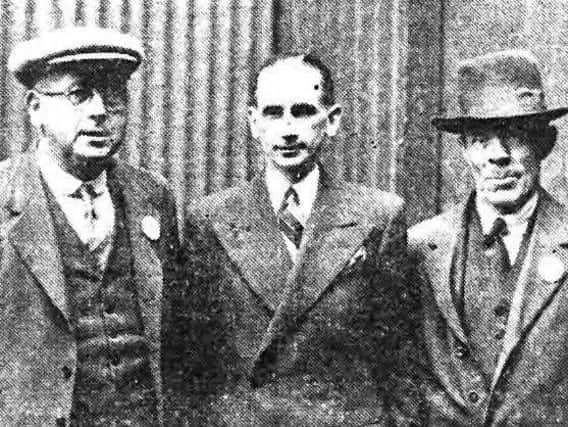BYGONE DAYS: Floods cause low-lying tracts to be ‘converted into seas of water’


Potatoes, hay and oats are stated to be in a bad way, though from Strabane came news of promising crops “if the weather keeps good”.
The rivers Bann, Maine, Braid, Sixmilewater, Kellswater, Clough, and all their tributaries had been swollen to such an extent that “many low-lying tracts have been converted into seas of water”, said a Mid Antrim representative.
Advertisement
Advertisement
The River Bann itself was only an inch and a half below its highest winter level.
About half the grain in the district had yet to be reaped, whilst in many places the corn that was cut is sitting in several feet of water.
“Unless a bidden change takes place, it is believed that more than the half of the grain will be lost,” remarked a correspondent to the News Letter.
The potato crop in low-lying districts had rotted in the ground and it was feared would never be dug.
Advertisement
Advertisement
A Co Monaghan correspondent stated that for 20 miles or more between Clones and Enniskillen the country might be described as “a veritable lake”, and “the destruction caused to farmers residing along the banks of the Erne, Finn, and Sillis rivers amounts to many thousands of pounds”.
Potatoes, hay and oats had been completely lost, while turf supply had suffered severely. Most of the main areas were still submerged at certain points, and “the difficulty and danger of travelling is still very great”.
The correspondent from Monaghan added: “Rural postmen have had to abandon deliveries in many districts, and the farmers are completely cut off from cattle they possess on outlying farms.”
‘Milk planes’ for England held up by stormy weather
It was reported on this day in 1947 that the transport of Northern Ireland milk by air from Nutt’s Corner to ease North-West England’s shortage had to be cancelled after four flights had been completed because high winds over the Mersey made landing difficult at Liverpool Airport.
Advertisement
Advertisement
Only 4,500 gallons were landed instead of 14,000 gallons - the daily target. An official of the Ministry of Agriculture told a News Letter reporter that it was hoped to deliver the full quota of 14,000 gallons, as the weather outlook was good.
Milk which could not be sent the previous day was taken back to the ministry’s depots and would be used for the manufacture of butter or milk powder. “Not a drop”, the official stated, “would be lost”.
Bovine tuberculosis lecture
In the course of a lecture given to the Belfast and District Branch of the Royal Institute of Chemistry at the Royal Belfast Academical Institution this week in 1947, Mr J L McGirr advanced a strong plea for “a more enlightened educational campaign that the public, and in particular farmers, may gain a real appreciation of the value of the eradication of tuberculosis from cattle”.
The dangers of infected milk and the appallingly high rale of infection and mortality in children represented the public health aspect of the problem, said Mr McGirr.